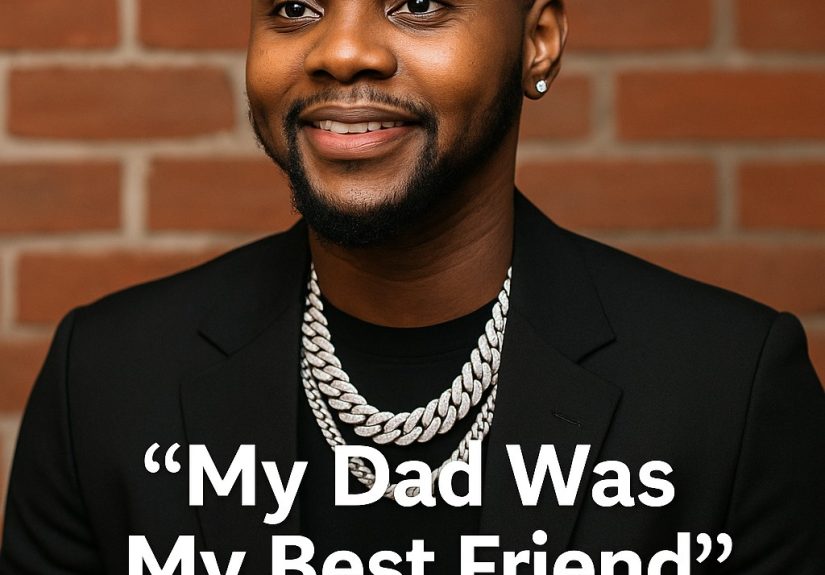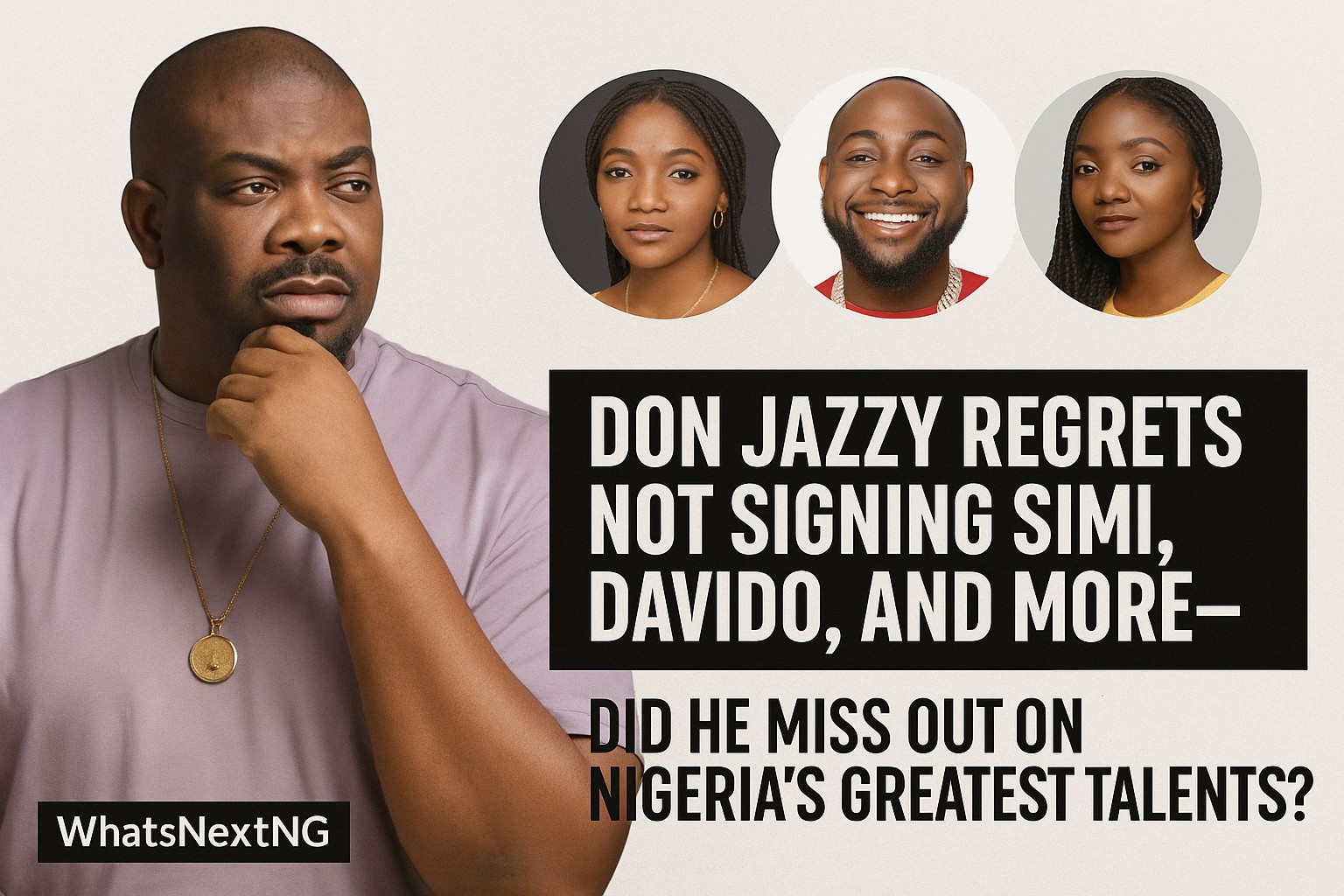
“My Dad Was My Best Friend” Kizz Daniel’s Heartbreaking Confession Unmasks the Pressure of Fame
When Nigerian music sensation Kizz Daniel said in a recent interview that “my dad was my best friend,” fans didn’t just hear a sentimental line they felt the weight of a deeply emotional confession from an artist often portrayed as aloof and mysterious.
The statement, made during a sit-down on a Lagos-based podcast, revealed not just a softer side of the Buga crooner, but also peeled back the glittery surface of fame to expose the human wounds many celebrities hide: grief, guilt, and the relentless pursuit of validation.
And in classic Nigerian fashion, the internet has responded with both sympathy and cynicism.
ALSO READ
Highlife Legend Mike Ejeagha Passes On
Lemon Chase’, after losing my son, work station- Kizz Daniel
Who Was Kizz Daniel’s Father?
Born Oluwatobiloba Daniel Anidugbe, Kizz Daniel has always kept a tight lid on his personal life. But fans who have followed his rise from Woju to Buga know that the singer lost his father, Kola Anidugbe, in 2015 just as he was stepping into the spotlight.
At the time, the tragedy barely made headlines. Today, it’s clear it left a crater-sized void in the artist’s life.
“He believed in me before anyone else did,” Kizz said, fighting back tears. “Everything I am now, I owe to his confidence in me. He wasn’t just my dad he was my best friend.”
Behind the Fame: The Cost of Silence and Success
For many Nigerian celebrities, emotional vulnerability is risky. In an industry driven by swagger, success, and sensationalism, showing pain can be seen as weakness.
Yet here was Kizz Daniel Africa’s certified hitmaker admitting that beneath the danceable beats and Instagram-perfect visuals is a man still mourning the loss of his father, still searching for that grounding force that fame could never replace.
He even confessed that his career’s early momentum distanced him from the mourning process. “I didn’t grieve properly. I just kept working. Studio, shows, back to back. Maybe I was running away from the pain.”
The “Buga” Paradox: Dance While Dying Inside?
This confession throws a new light on Kizz Daniel’s discography. Songs like Mama, One Ticket, and even the wildly successful Buga can now be seen through the lens of a man wrestling with expectations, loneliness, and loss.
Is it possible that the global anthem that made everyone dance was crafted by someone silently breaking?
Why Nigerians Are Split
Social media users have been divided over his statement:
“Respect to Kizz Daniel. Grief is real and doesn’t care if you’re famous,” wrote one fan.
“Please. Everyone has dead parents. He should stop using it for PR,” said another comment that quickly went viral.
And there lies the controversy.
In a country like Nigeria, where mental health remains taboo, and celebrity culture demands perfection, vulnerability can be seen as performative. But is that fair? Should celebrities be denied the right to mourn or speak just because they live in the limelight?
Is Kizz Daniel Using Grief to Rebrand?
Critics argue that the interview might be part of a deliberate image reset. Known for being notoriously private and sometimes “unreachable,” Kizz Daniel has often been criticized for lacking media charisma.
Now, with this emotional revelation, some say he’s playing the “vulnerable card” to appeal to fans on a deeper, more personal level. Others, however, believe this is his most authentic moment yet.
Whatever the intent, one thing is clear: people are talking—and that, in the world of showbiz, is always a win.
Why This Story Matters
Kizz Daniel’s statement is bigger than celebrity gossip. It shines a light on:
- Father-son dynamics in African culture, where emotional closeness is often stifled by patriarchy.
- The emotional toll of early fame and the lack of psychological support in the Nigerian music industry.
- The importance of grief awareness in a society that expects men to “be strong” and “move on.”
In a world that rewards pretenders and punishes feelers, Kizz Daniel’s words are both bold and necessary.
What Can We Learn?
For fans, the takeaway is simple: your idols are humans too. They bleed. cry. They mourn in silence while entertaining millions. And sometimes, they need more than applause—they need empathy.
For the industry, it’s a call to build systems that protect the emotional well-being of artists. Fame shouldn’t mean emotional starvation.
And for Nigeria, it’s a challenge to normalize conversations around grief, loss, and fatherhood. Real strength is not pretending you’re okay. It’s having the courage to say, “I’m still healing.”
Conclusion: The Grief Behind the Glory
Kizz Daniel’s emotional reveal is not a weakness it’s a rebellion against the culture of silence. By saying “My dad was my best friend,” he reminds us that beneath the layers of fame, glam, and ego is a boy still mourning a man who believed in him before the world did.
In a rare emotional moment, Nigerian music star Kizz Daniel revealed that his late father was his “best friend,” sparking a deep conversation around grief, vulnerability, and the pressures of fame. Opening up during an interview, Kizz admitted he never fully mourned his father’s 2015 passing due to the demands of his rising career.
The revelation humanized the usually private artist and shed light on the emotional struggles celebrities often hide. While some praised his honesty, others accused him of using grief as a PR strategy. Still, his message resonates behind the success, there’s often unspoken pain.
If only more men and more artists could speak so freely, maybe grief wouldn’t be so lonely.
And maybe, just maybe, Nigeria would finally listen.






